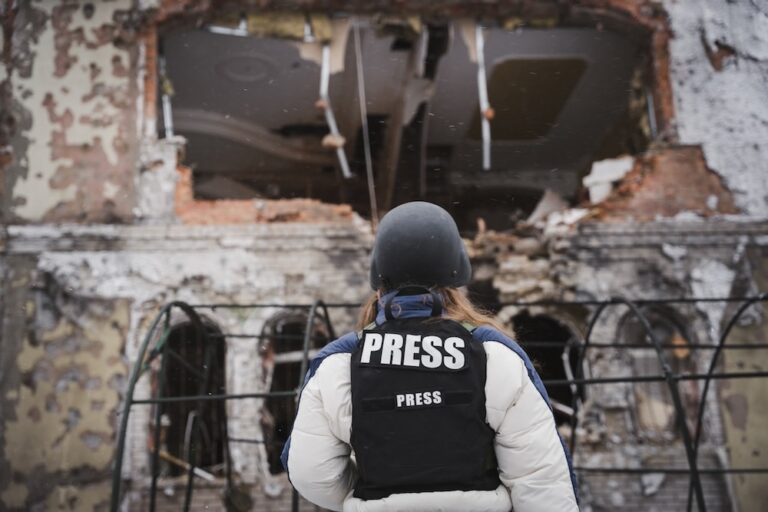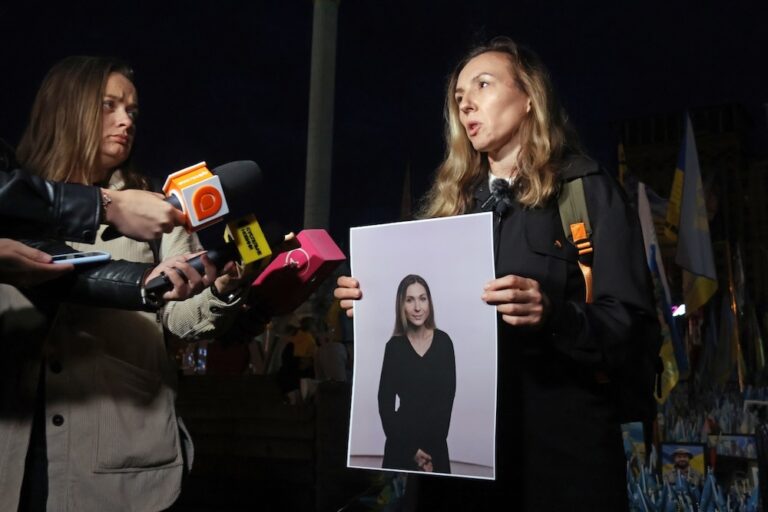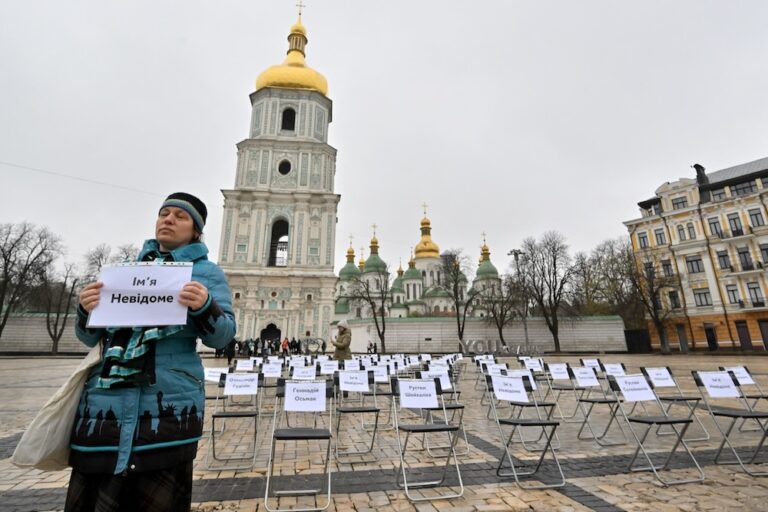(RSF/IFEX) – An independent team of experts from the Institute of Criminal Medicine in Lausanne, Switzerland, has established that the body found in a forest near Kiev on 2 November 2000 is almost certainly that of disappeared journalist Georgiy Gongadze, RSF and the Mass Media Institute announced at a joint press conference on 11 March […]
(RSF/IFEX) – An independent team of experts from the Institute of Criminal Medicine in Lausanne, Switzerland, has established that the body found in a forest near Kiev on 2 November 2000 is almost certainly that of disappeared journalist Georgiy Gongadze, RSF and the Mass Media Institute announced at a joint press conference on 11 March 2003 in Kiev.
According to the expert report, commissioned by RSF at the request of the deceased’s mother, Lessia Gongadze, “There is a statistical probability of more than 99.991 percent that Lessia Gongadze is the mother of the corpse found in the forest district of Tarachtcha in the Kiev region. The maternal link between Lessia Gongadze and the corpse to be identified is therefore virtually proven.”
RSF and the Mass Media Institute said the DNA test carried out by the Swiss experts removed any lingering doubts that the body found on 2 November 2000 was indeed that of Gongadze, who disappeared on 16 September 2000. Lessia Gongadze announced at the press conference that she was now ready to bury her son, which she has repeatedly refused to do since the body was discovered.
RSF was represented at the press conference by its secretary-general, Robert Ménard, and the head of its Europe desk, Soria Blatmann. While in Kiev, they also met with Ukrainian Attorney General Sviatoslav Piskun and his deputy, Viktor Shokin, to enquire about the current state of the investigation into Gongadze’s death.
“It emerged from the meeting, which lasted almost two hours, that the investigation into the death of Georgiy Gongadze is finally progressing,” Ménard said. “The focus is now on a certain number of people and the investigators are supposed to be looking at the Interior Ministry,” he said. Ménard could not go into greater detail as he must respect rules of confidentiality since becoming the legal representative of Gongadze’s mother and his widow, Myroslava Gongadze, in September 2002.
RSF has, however, asked that investigators question former attorney general Mikhailo Potebenko, who was elected to the Ukrainian Parliament in March 2001, and lift his parliamentary immunity, if necessary. Following Gongadze’s disappearance, when Potebenko was attorney general, everything possible was done to cover up leads pointing toward those responsible. Shortly after taking over as attorney general in July 2002, Piskun said the investigation would have to restart from scratch.
A political journalist and editor of the online newspaper www.pravda.com.ua, the 31-year-old Gongadze was well known for his articles criticising the Ukrainian government. His disappearance became a national issue after the broadcast on 28 November 2000 of recordings supposedly made in President Kuchma’s office which seemed to implicate very senior officials in his death.
An RSF fact-finding mission in January 2001 established that there were a series of very serious shortcomings in the official investigation and that its primary aim had been to protect the authorities rather than seek the truth. Myroslava and Lessia Gongadze were systematically denied any access to the investigation and were refused the right to launch a civil action until January 2001. They were also never given access to the results of any of the previous autopsies carried out on Gongadze’s body.


